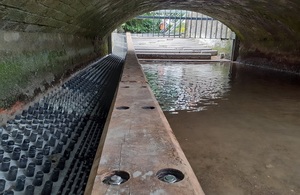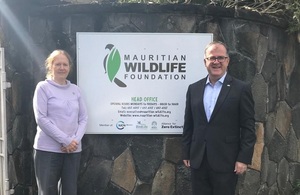The Home Office has today published an independent evaluation of the work of Violence Reduction Units (VRUs).
It found that in their first year they invested in 175 programmes designed to help young people at risk of being drawn into violent crime.
They include prevention work in schools, communities, prisons, hospitals, Pupil Referral Units and police custody suites.
The evalution comes as the government has today announced that VRUs will be distributing a further £2.9 million to hundreds of frontline charities working on violence prevention projects.
Home Secretary Priti Patel said:
I am determined to ensure we use every possible tool to stop violent crime happening in the first place.
A key part of that mission is protecting children and young people and preventing them from falling into the clutches of criminals.
It is encouraging to see the progress these units are making, but we will continue our relentless drive to deliver the safer streets the law-abiding majority deserve.
Smaller charities work tirelessly in our communities and this funding will ensure they can continue providing life-changing support.
In the summer of 2019, the Home Office announced that 18 Police and Crime Commissioners in the areas worst affected by violent crime would share £35 million to establish VRUs, with a further £35 million provided for 2020/21.
VRUs bring together different organisations – including the police, local government, health, community leaders and other key partners in local areas – to tackle violent crime by understanding its root causes and driving a co-ordinated response.
Their work forms part of the government’s drive to tackle crime and make communities safer, alongside the recruitment of 20,000 additional police officers over the next three years.
The evaluation published today found that of the 100,000 people who were supported as a result of initiatives funded by VRUs in 2019/20, more than 51,000 were identified as potentially high-risk, or suspected to be involved in criminal and violent activity. The remaining young people may live or attend school in an area with high levels of deprivation or crime and were targeted by interventions to increase awareness of the risks.
The funding announced today is being directed to smaller charities providing critical frontline services for children and young people, to ensure they can meet increased demand as a result of the coronavirus pandemic, as well as continuing their day-to-day activities.
This will allow them to continue to support vulnerable young people at risk of violence, adapting support services if necessary, for example by using remote working and technology.
More than 300 charities will share in the financial assistance, which is part of the £750 million package of support for charities announced by the Chancellor in April.
The smaller charities carry out a variety of work at community level to support children and young people and families, including outreach work and drop-in sessions, sports, cultural activity and wellbeing sessions.
On Thursday the Home Secretary visited one of the organisations receiving funding, Achievement Through Football (ATF) based in Essex, who work to support young people as well as providing mentoring for their parents or carers.
The charity runs sports sessions including football, boxing and basketball, and a garden project as a way to engage with young people and help them build life skills. The Home Secretary met with parents, young ambassadors and mentors as well as representatives from the Essex Violence & Vulnerability Unit.
ATF chairman and volunteer Dr David Sollis said:
It was a real honour to meet the Home Secretary today and we thank her for taking time to meet the children, the volunteers and the staff who have made this summer camp amazing.
The children loved gardening with her and showing off their sporting skills, everyone felt listened to and we hope the Home Secretary enjoyed her time with us.
The additional funding is broken down as follows:
| VRU |
Funding amount |
| London |
£587,680 |
| West Midlands |
£285,168 |
| Greater Manchester |
£285,168 |
| Merseyside |
£285,168 |
| West Yorkshire |
£285,168 |
| South Yorkshire |
£135,612 |
| Northumbria |
£135,612 |
| Thames Valley |
£98,101 |
| Lancashire |
£98,101 |
| Essex |
£98,101 |
| Avon and Somerset |
£98,101 |
| Kent |
£98,101 |
| Nottinghamshire |
£74,720 |
| Leicestershire |
£74,720 |
| Bedfordshire |
£74,720 |
| Sussex |
£74,720 |
| Hampshire |
£74,720 |
| South Wales |
£74,720 |

